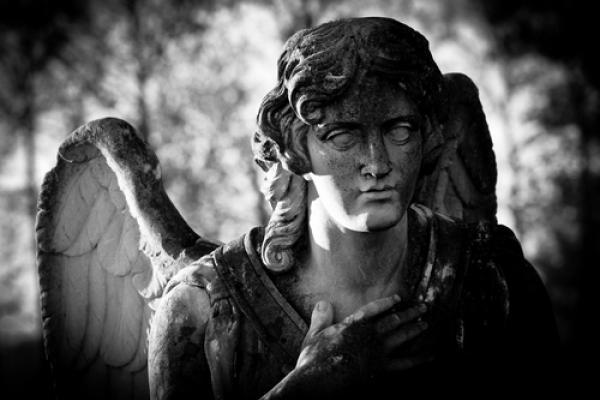I am tormented by what took place at the Boston Marathon. An iconic event that is supposed to be a celebration of achievement and companionship will be scarred with memories of injury and death for years to come. However, the source of my distress is not only the horrific sights and sounds of violence and terror, but in such dreadful disasters I also struggle with our common conceptions of a loving God. As many wonder where God was in the midst of such tragedy, and while others question why God did not (or could not) prevent such terror from taking place, I am personally tormented with my belief of where God's love will be placed in its aftermath.
On the one hand, we are told “blessed are those who mourn, for they will be comforted” (Matthew 5: 4), and in receiving the Gospel in such ways, we take comfort in the belief that God is with those who suffer and directly at the side of those who struggle. This conception of a loving God offers relief for the victims in Boston and all those on the receiving end of transgression. However, while we proclaim a God in solidarity alongside those in pain, we are also often told that God is present with those who cause the pain, for the love and forgiveness found in Jesus is inclusive, it has no boundaries, and nothing is able to “separate us from the love of God in Christ Jesus our Lord” (Romans 8:38-39). So just as Jesus was sent to soothe those who suffer, he also absolves those responsible for the suffering. As a result, we are left with a God who seems to love both saints and sinners, which means we are both comforted and confronted in the aftermath of tragedy in Boston.
As we consider the identities of those responsible for what took place at the Boston Marathon, and as we take a deeper look at our own thoughts and behaviors, we are shown the core nature of who God is and what God does in and through our world. While those to blame for the Boston tragedy deserve to be punished for their crime, and while we believe that God is infuriated with such cowardly acts, we also recognize that the guilty are not any less human than the rest of us, and we cannot label such people as monsters to somehow separate our human identity from theirs. While our personal actions have various levels of public consequences, at our core each and every one of us possesses countless faults. As a result, we all require forgiveness due to the diverse degrees of harm we impose upon others, which means we all require humility and restraint when tempted to judge others on behalf of God.
While we often celebrate the inclusive love of God, in many ways we recognize how shocking – and even scandalous – such love actually is. As Jesus himself died on the cross in the company of criminals, we affirm that in God’s eyes we are not defined by our worst acts, and even those responsible for evil deeds are offered the gift of grace, love, and forgiveness. Just as we believe God is in solidarity with those in pain, we also believe that God does not give up on us, any of us, no matter how much pain we might inflict upon others. While we support the institutions that hold us accountable for our offenses, and we affirm the desire to punish those found guilty of crime, we also recognize that each and every person falls short of God’s divine law. Thus not only are all people guilty in some shape or form, but by God’s grace we never get the punishment that we actually deserve. Regardless of who we are or what we have done or left undone, we receive the life-giving promise of the Gospel and blessed assurance that God will never leave us or forsake us. This is the scandalous nature of God’s criminal justice.
And so, can God actually love those responsible for the recent bombings in Boston? As shocking and troubling as it may sound, and as tormented as it might make us feel, we affirm in Jesus’ name that God can (and does). While God is disgusted with their actions, and while we believe God is with all those impacted by this horrific event, we also recognize God’s love as being so profound and utterly inconceivable that God does not given up on anyone, not even those responsible for acts of terrorism. And so, as we journey forward in the aftermath of this terrible tragedy, may we be confronted and comforted by the reality of God’s abundant grace. While we cannot passively accept the massive pain and suffering that is taking place in Boston and other areas around the world, one of the ways we can reconcile, transform, and empower is through an outpouring of love and compassion for both victims and victimizers. As the God made known to us in Jesus embodied the way of restoration over retaliation, may we learn to follow this difficult and necessary path, in Boston and in all places, so that we may realize God’s criminal justice throughout the world.
Brian E. Konkol is an ordained pastor of the Evangelical Lutheran Church in America (ELCA), serves as Co-Pastor of Lake Edge Lutheran Church (Madison, Wis.), and is a PhD candidate in Theology & Development with the University of KwaZulu-Natal (South Africa).
Image: Guardian angel, umbertoleporini / Shutterstock.com
Got something to say about what you're reading? We value your feedback!
